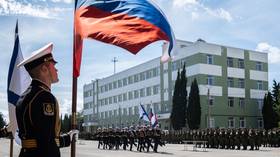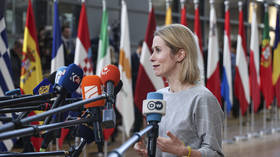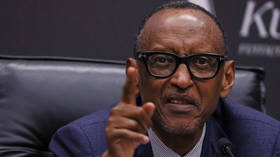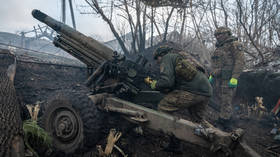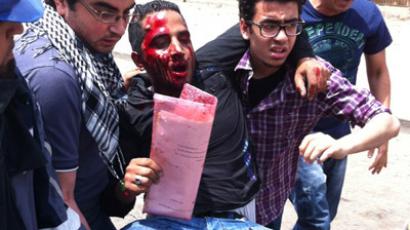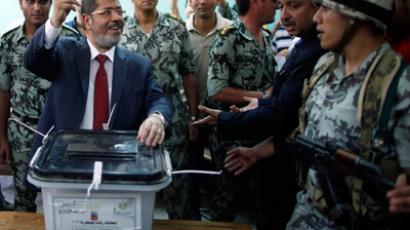Egypt military use ailing Mubarak as scapegoat?
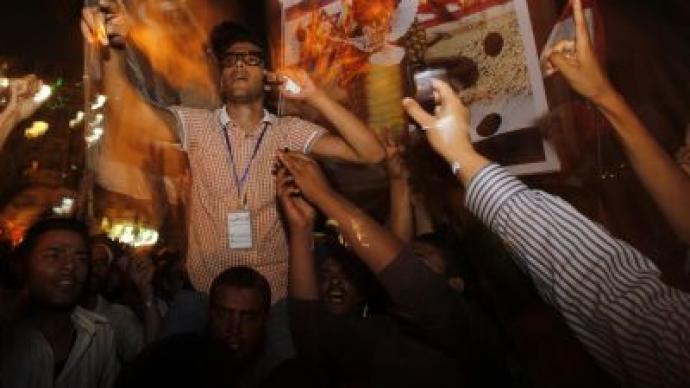
The Egyptian government has postponed presidential vote results amid conflicting reports of ex-leader Hosni Mubarak’s worsening health. His transfer to hospital prompted claims the military authorities are using him as a scapegoat to delay elections.
With surprising frequency, reports of Mubarak being on a deathbed coincide with situations when the ruling Military Council seems to be on a brink of political collapse, Said Sadek, a professor of political sociology at the American University in Cairo, told RT.RT: What do you make of the claims that the military council is using Hosni Mubarak's health to distract attention from what they are doing?Said Sadek: Whenever you have tensions in Tahrir and they are politically cornered, you always get reports or minor details about the critical condition of Mubarak. We saw him two weeks ago, when the sentence was passed on him. He was in his own cell in the court, he dyed his hair and he looked fine. I mean he was not really looking like a total collapse.Yesterday there was a big demonstration organized by the Muslim Brotherhood to protest the constitutional constraints that were imposed by the SCAF on the newly elected president, supposedly.And all of a sudden we began to see, in the middle of the demonstration, reports that the ex-president is clinically dead.But it had no effect on the people in Tahrir who were protesting, because Mubarak for many politicians in Egypt is part of Egypt’s political history. He is not part of the present or the future. He does not affect the current situation.If Mubarak passes away and General Shafiq loses the presidential election, this would be a big morale blow to the counterrevolution and the current system.RT: If Morsi wins, and many think he will, will we see a direct confrontation between the generals and the newly elected president?SS: Of course. On Sunday-Monday, something very strange happened. The Muslim Brotherhood organized a press conference, imagine, at four in the morning, to announce that their candidate is a winner. They tried to create a psychological atmosphere and public opinion supporting their candidate and presenting the public opinion was a fait accompli.If the election commission comes tomorrow and declares that the other candidate is the winner, it would be a repeat of the Algerian scenario. So this was a kind of pressure that the Muslim Brotherhood is doing.Now, because of the growing tension in the country, the commission decided that it will postpone an announcement of the results.There are three options now.Either you’ll have a confrontation when they announce that it is General Shafiq, and that would lead the Muslim Brotherhood and the revolutionaries to mobilize against him. And that would lead the country into big chaos.The second scenario is that the military council and the Muslim Brotherhood would reach an agreement, a Pakistani model, in which there is a division of the political pie between the military and the Brotherhood.The third option is that they declare the Muslim Brotherhood's candidate a winner. And in this case there will be less violent action in the street, but there will be sadness in the country.This is the first time Egyptians in 7,000 years would freely elect the president. But this is not the most favorable choice they wanted. The Egyptian revolutionary slogan was: “We don’t want a theocratic state and we do not want a military state.”Now we are going to have somebody who represents and symbolizes a theocratic state. And people will be watching his moves – is he going to apply his own interpretation of the Islamic Sharia, a medieval interpretation of the modern Egypt that would push Egypt into the Dark Ages, or is he going to try to accommodate the liberals.If half of the population did note vote for Mr. Morsi, he has to take that into consideration.





